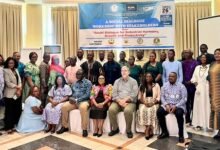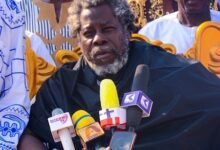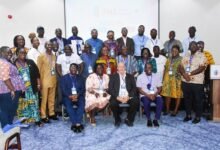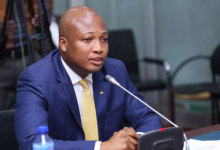Upper East RCC tackles FGM in region

The Upper East Regional Coordinating Council (RCC), with financial support from the United Nations Population Fund (UNFPA), has held a day’s workshop on Female Gentile Multination (FGM).
It aimed at addressing the root causes of the problem once and for all.
The stakeholders, including traditional, religious, civil society organisations, heads of government institutions, academia and journalists, confirmed the existence of the negative cultural practices across the broader towns of the Upper East Region, including Paga, Bawku, Pusiga, and Navrongo.
They reiterated a multi-sectorial approach to end the canker.
Opening the stakeholders meeting on Monday, the UNFPA Ghana’s Country Representative, Dr Agnes Kayit Ankore, indicated that her outfit was concerned about the negative cultural practices such as FGM, Child and Early Marriage which did not only infringe on the fundamental rights of victims but their health as well.
She emphasised that the situation had serious implication on the achievement of the Sustainable Development Goals.
While calling on all stakeholders to join hands in tackling the canker, the UNFPA Ghana Country Representative pledged that her outfit would continue to help the government fight against FGM, including other negative cultural practices such as child and forced marriages which were still predominant in many parts of the country.
“It is worth noting that the harmful practices such as FGM, which is internationally recognised as a form of violence, is prevalent in Ghana, especially around some parts of the Upper East, Upper West, as well as Bono and Bono East regions,” the UNFPA Ghana Country Representative disclosed.
A lecturer of the University of Health and Allied Sciences, Dr Matilda Aberese-Ako, stressed that the root causes of FGM were based on economic, social, cultural and political.
She asked that government’s decision on criminalisation of FGM should take into consideration the livelihood empowerment of practitioners and also entreated the social scientists or the academia to do more research on gender-based violence.
“She disclosed that a research conducted by UNICEF revealed that four per cent of girls and women aged 15-49 have undergone FGM.
The programme specialist and the Head of United Nations Fund for Population Activities, decentralised office in Tamale, Mr Mammah Teni, stated that the FGM programme, being funded by the UNFPA, would adopt the cross border approach, including towns in Burkina Faso and Togo.
FROM SAMUEL AKAPULE BOLGATANGA






